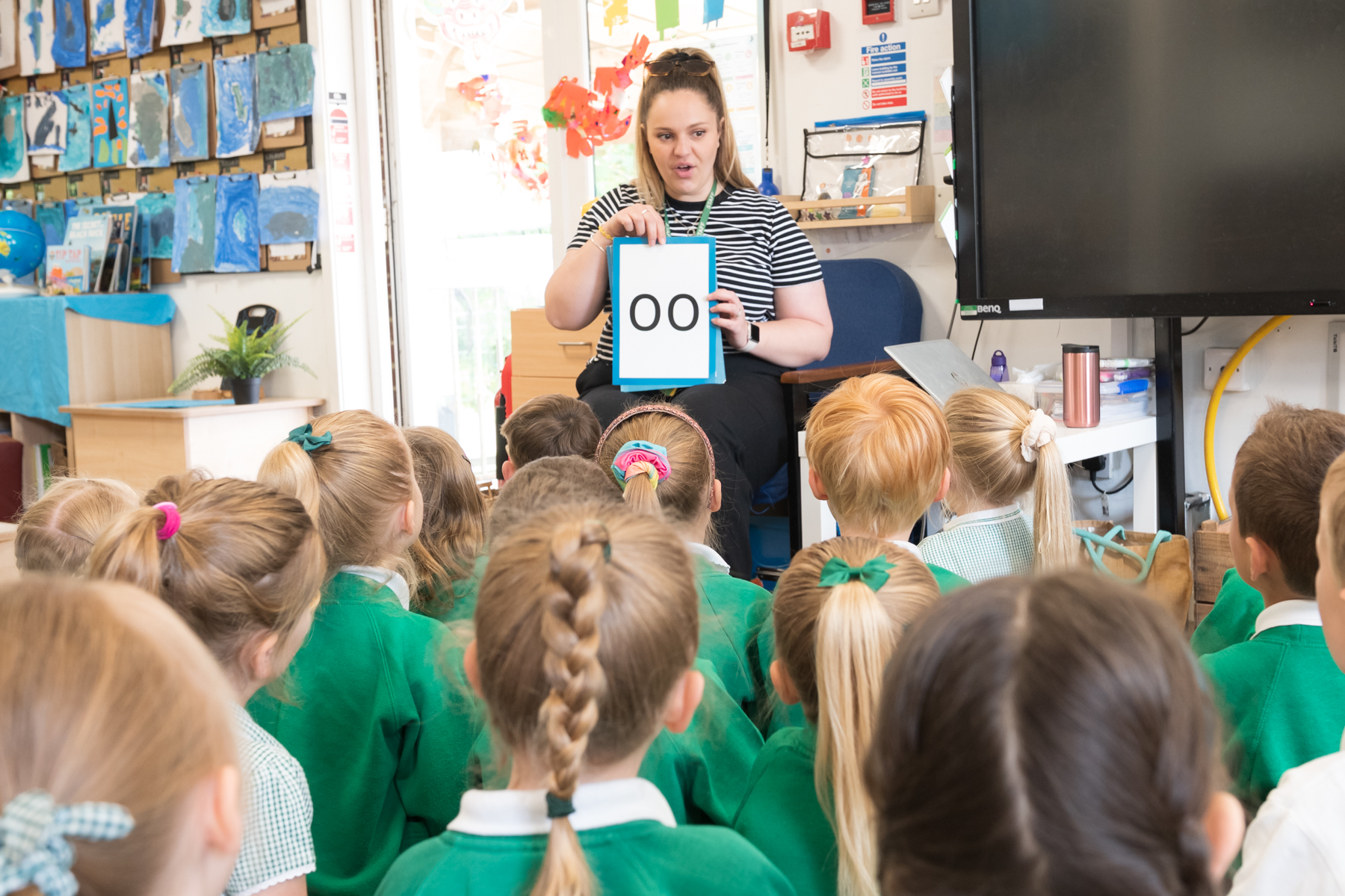Phonics
Welcome to our Phonics Curriculum page. At East Farleigh, we are dedicated to ensuring every child becomes a confident and enthusiastic reader. We use the Little Wandle Letters and Sounds Revised programme to deliver high-quality phonics instruction.

What is Little Wandle?
Little Wandle Letters and Sounds Revised is a comprehensive phonics programme designed to provide children with a solid foundation in reading and writing. It systematically teaches the relationship between letters and sounds, helping children to decode words efficiently and develop fluent reading skills.
Our Approach
Our phonics instruction begins in the Early Years Foundation Stage (EYFS) and continues through Key Stage 1 (KS1). Here's how we implement the Little Wandle programme:
- Daily Phonics Lessons: Children engage in daily phonics lessons where they learn new sounds and practice blending them to read words. These sessions are interactive and engaging, ensuring all children are actively involved in their learning.
- Systematic Progression: The Little Wandle programme is structured to ensure a clear progression of skills. Each lesson builds on previous learning, gradually introducing more complex sounds and words.
- Multisensory Activities: We use a variety of activities and resources to cater to different learning styles. These include visual aids, songs, games, and hands-on materials to make learning fun and memorable.
- Assessment and Support: Regular assessments help us monitor each child's progress. This allows us to provide targeted support for those who need additional help and to challenge those who are ready to advance more quickly.
How We Teaching Phonics at EFPS in EYFS and Year 1
EYFS
Year 1
Video TBC
Little Wandle Key Information
Phonics is a key component of early literacy development. By focusing on the sounds that letters and combinations of letters make, children learn to read words accurately and fluently. This not only boosts their reading confidence but also enhances their comprehension skills and overall enjoyment of reading.
https://www.littlewandlelettersandsounds.org.uk/resources/for-parents/
The above link will lead you to the Little Wandle website. Here you will find lots of useful information and videos that demonstrate how we teach phonics.
Each week we update our Weekly Learning page with the sounds we will be introducing/recapping that week.
So, you can:
- Revise sounds your child already knows.
- Recap the new sounds they have learnt that week along with its spelling.
- Use the new sound in a word and ask your child to repeat the sound back to you.
- Show your child how to blend, or sound out, words which use the new sound. For example, if your new sound is long i spelled ‘igh’, you would sound out the separate sounds, and then blend the sounds together to form the word, like this: ‘n – igh – t’ … ‘night’.
- Follow up by reading books which practise the new sound.
Pronunciation Guides
EYFS Autumn 1
reception grapheme information sheet autumn 1.pdf
EYFS Autumn 2
reception grapheme information sheet autumn 2.pdf
EYFS Spring and Summer
how to say phase 3 sounds august 2022 .pdf
Year 1
how to say the phase 5 sounds september 2022 3 .pdf
Parental Involvement
We believe that parents play a crucial role in supporting their child's phonics development. We provide resources and guidance to help you reinforce phonics learning at home, including:
- Workshops and Meetings: We hold workshops and information meetings to explain the Little Wandle programme and demonstrate phonics activities you can do with your child.
- Home Learning Packs: These packs include phonics games, flashcards, and reading books that align with what your child is learning in school.
Why Phonics?
Phonics is a key component of early literacy development. By focusing on the sounds that letters and combinations of letters make, children learn to read words accurately and fluently. This not only boosts their reading confidence but also enhances their comprehension skills and overall enjoyment of reading.
How Do We Assess Phonics?
In EYFS and Year 1, at the end of each week there is a review session which recaps the learning. There are also whole review weeks (pre-planned and bespoke review weeks to address gaps identified by the class teacher’s ongoing formative assessment). These occur every 6 weeks.
- Children identified in Reception and Year 1 as falling behind are immediately identified and daily ‘keep up’ sessions are put in place – sessions follow the Little Wandle Letters and Sounds Revised programme.
- In Reception and Year 1, the children are assessed at the end of every half term using the Little Wandle Letters and Sounds Revised assessment tracker.
- The children in Year 1 sit the Phonics Screening Check in the summer term.
- Children who do not pass the Phonics Screening Check in Year 1, will re-sit this in Year 2.
- Children who are in Year 2 and need ‘catch up’ sessions are assessed through teacher’s ongoing formative assessment as well as half termly summative assessments.
Success with Little Wandle
The Little Wandle programme has a proven track record of success. Children who follow this programme typically make excellent progress in their reading and writing skills. Our dedicated staff are trained to deliver the programme effectively, ensuring every child receives the support they need to succeed. See our latest results to see.
For more information about our phonics curriculum or to learn how you can support your child's learning at home, please contact the school office. We are committed to working together to ensure every child becomes a confident and joyful reader.











